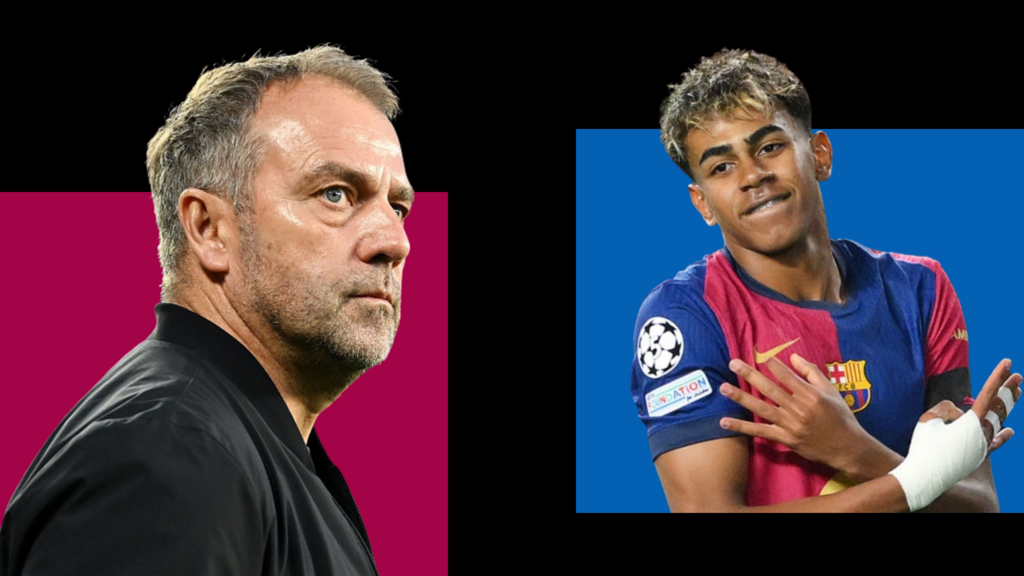Echoing Alan Hansen’s famous 1995-96 proclamation about “kids” not winning titles, Hansi Flick’s young Barcelona squad has defied expectations.
Similar to Manchester United’s Class of ’92, Barcelona’s youthful core has secured a La Liga and Copa del Rey double, prompting comparisons to legendary teams.
Their 2-0 victory over Espanyol confirmed their La Liga triumph, adding to their Copa del Rey win in April. This success, coupled with a near-miss Champions League final appearance, has rekindled excitement around the club.
The dazzling performances of players like 17-year-old Lamine Yamal, 18-year-old Pau Cubarsi, and 22-year-old Pedri have captivated fans, drawing parallels to Pep Guardiola’s dominant Barcelona team of 2008-2011.
With a significantly low average age (25) – the youngest in La Liga – Barcelona’s financial struggles inadvertently created a breeding ground for homegrown talent to flourish.
Barcelona’s well-documented financial difficulties, preventing the registration of existing players, let alone major signings, laid the foundation for this unexpected success.
However, the resurgence extends beyond just youth. Hansi Flick’s managerial impact has been pivotal.
Stunning stats and ‘Ronaldo behaviour’ – is Yamal cut out to rival Messi?
From almost quitting football to Ballon d’Or hope – Raphinha’s rebirth
Hansi Flick has guided Barcelona to domestic double success in his inaugural season.
Upon arriving, Flick encountered underperforming veterans like Robert Lewandowski, Raphinha, and Frenkie de Jong, hampered by a lack of confidence stemming from Xavi’s tenure.
Raphinha’s limited playing time, Lewandowski’s unfamiliar role, and De Jong’s perceived expendability created a climate of uncertainty.
Flick immediately addressed this, emphasizing their importance. Lewandowski boasts 25 league goals, and Raphinha 18, showcasing the impact of renewed faith.
Flick also recognized an imbalance, where youth potential wasn’t fully leveraged. While Xavi deserves credit for integrating young players due to financial constraints, Flick empowered them further.
Players like Gavi, Yamal, Alejandro Balde, and Marc Casado thrived under Flick’s leadership, finding their voices, even influencing dressing room music choices.
This trust fostered a vibrant, carefree style of play. He also maintained strong relationships with fringe players, emphasizing opportunities arising from inevitable injuries.
Flick’s transfer activity has been minimal, focusing on squad cohesion rather than significant additions.
Prioritizing player input on fitness, Flick consults players like Yamal and Raphinha regarding rest, further strengthening team unity.
He remains unfazed by media pressure, maintaining honesty and transparency with his players, even navigating a challenging period with four losses and five points from 21 before the Christmas break.
Lamine Yamal has become the youngest player to achieve 100 Barcelona appearances.
Flick’s evolution as a manager is evident. The 5-4 Champions League victory against Benfica in January, featuring De Jong and Olmo, revealed his optimal starting XI.
This match highlighted Raphinha’s leadership qualities, solidifying his role. The need for a strong defensive leader was addressed by the addition of Inigo Martinez.
Martinez, despite his age and past positioning, embraced the high defensive line, displaying exceptional commitment.
Flick’s management of Yamal showcases careful guidance. While acknowledging the teenager’s ambition, Flick ensures his defensive responsibilities are met.
Yamal’s improved defensive contributions, surpassing even Pedri in the recent Clasico victory, demonstrate this approach’s effectiveness.
Crucially, players like Yamal, Raphinha, and De Jong foster a united team spirit.
Flick provides the strategy; the players provide the unwavering commitment. While the manager sets the overall direction, the players are fully invested in the collective goal.
Flick maintains a strong emphasis on discipline, exemplified by benchings for tardiness, affecting players like Jules Kounde and Inaki Pena.
The emphasis on team unity is also visible in the shift away from designer clothing towards team attire for away matches.
Personally, Flick’s hip replacement has significantly improved his quality of life, positively impacting his coaching focus.
Despite their success, Flick acknowledges areas for improvement, particularly their defensive vulnerabilities in the Champions League.
The focus for next season is to balance their thrilling attack with greater control and game management.
With Flick’s guidance, Barcelona aims to further refine their style of play.
With one year remaining on his contract, Flick will likely renew, though a long-term commitment isn’t his priority.
Listen to the latest Football Daily podcast
Comments can not be loaded
To load Comments you need to enable JavaScript in your browser

